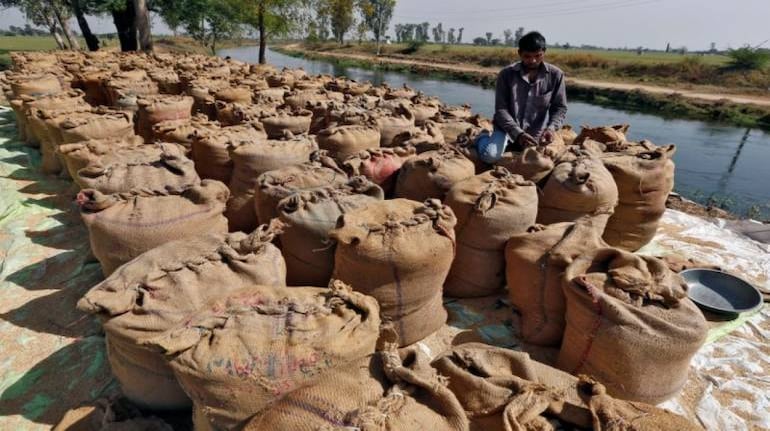



There have been widespread reports and estimates of poverty and food insecurity rising because of the coronavirus pandemic-induced economic slowdown.
Despite this, the government allocated a lower volume of food grains to states in 2020-21 under the public distribution system (PDS), statistics submitted by the Ministry of Consumer Affairs to Parliament show.
According to a written response submitted to the Lok Sabha on July 20 by the Minister of State for Consumer Affairs, Food & Public Distribution, Sadhvi Niranjan Jyoti, the total allocation of food grains such as wheat and rice under the central Targeted Public Distribution System (TPDS) was 1.1 lakh tonne lesser in FY21 than the previous year.
The total allocation to the states for FY21 under the TPDS stood at 5.48 crore tonnes of food grains, down from 5.49 crore tonnes in FY20, the previous year.
Interestingly, this represents a slide; the allocation had also decreased in the year before, dropping from 5.52 crore tonne in FY19.
As compared to the previous year, not only were lower quantities of wheat and rice given to states, but the offtake by states was also lesser than the year before.
Among larger states, only Andhra Pradesh, Jharkhand and Uttarakhand managed to offtake their total allocated amount, according to government figures.
Rising hunger
The COVID-19 pandemic has exacerbated hunger and poverty worldwide, especially in India, according to the World Economic Forum. This has been due to spiralling job losses, especially in the rural hinterland.
Case in point, unemployment data by business information company Centre for Monitoring Indian Economy (CMIE), shows that rural unemployment spiralled to 22.6 percent in May 2020 at the height of the national lockdown while urban unemployment reached 26 percent.
In the 2020 Global Hunger Index, India ranks 94th out of 107 countries. The pandemic and resulting unemployment have made India’s hunger crisis worse. The First Phase of the National Family Health Survey (NFHS) 2019-2020, has revealed alarming findings, with as many as 16 states showing an increase in underweight and severely wasted children under the age of five.
Public distribution system
The TPDS is governed under the provisions of the National Food Security Act, 2013 (NFSA), which provides for all.
It has a pan-India coverage of up to 75 percent of the rural population and up to 50 percent of the urban population. Calculated based on the 2011 Census, this comes to a massive 81.35 crore people fit to receive subsidized food grains.
Coverage under NFSA is under two major categories, households covered under the Antyodaya Anna Yojana (AAY) and the priority households (PHH), which are identified by the state governments and Union Territories' (UT) administrations as per criteria evolved by them within the coverage limit determined for the state/UT.
"Under the NFSA, Antyodaya Anna Yojana (AAY) households, are entitled to 35 kg of food grains per family per month while priority households are entitled to 5 kg of food grains per person per month at uniform subsidized prices of Rs. 3/2/1 per kg for rice/wheat/coarse grains respectively," the government has told Parliament.
NFSA beneficiaries are also entitled to receive 5 kg of food grains (rice/wheat) per person per month, free of cost from May to November 2021 under the Pradhan Mantri Garib Kalyan Anna Yojana to mitigate the impact of the COVID pandemic.
Discover the latest Business News, Sensex, and Nifty updates. Obtain Personal Finance insights, tax queries, and expert opinions on Moneycontrol or download the Moneycontrol App to stay updated!
Find the best of Al News in one place, specially curated for you every weekend.
Stay on top of the latest tech trends and biggest startup news.